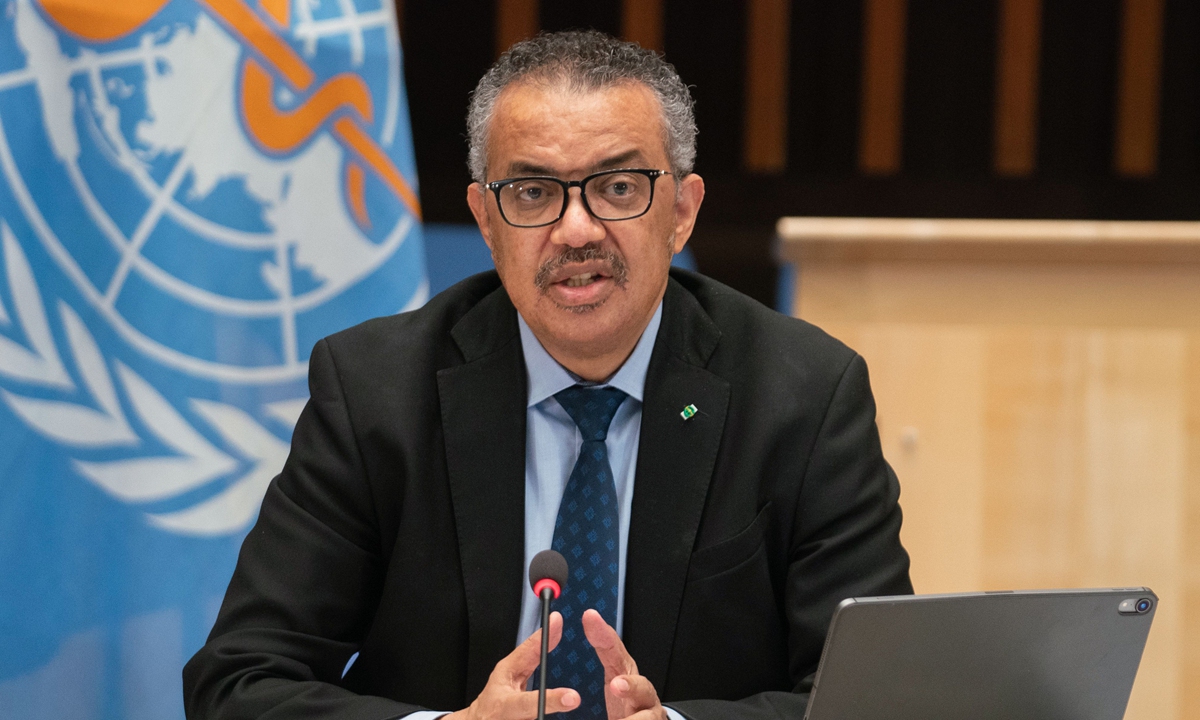
WHO Chief Warns Global Health Funding in Deepest Crisis ‘in Memory’

 :
| Updated On: 02-May-2025 @ 12:17 pm
:
| Updated On: 02-May-2025 @ 12:17 pmSHARE
The World Health Organization (WHO) is facing an unprecedented financial crisis, with its Director General, Tedros Adhanom Ghebreyesus, warning of a serious threat to global health due to dwindling donor support and impending deep budget cuts. Speaking on Thursday, Tedros described the situation as “the greatest disruption to global health financing in memory,” highlighting the sharp decline in contributions from member states and partners.
A major blow to the WHO’s finances came earlier this year when the United States, which had been the organization’s largest contributor, formally withdrew support. The U.S. government cited dissatisfaction with the WHO’s handling of the COVID-19 pandemic and other international health crises. Prior to its withdrawal, the U.S. accounted for nearly 20 percent of the WHO’s total budget. This move significantly intensified the agency’s financial instability.
In response to the funding shortfall, the WHO has begun revising its financial strategies. It has already scaled back current expenditures and proposed a drastic 21 percent cut to its 2026–2027 budget. According to an internal memo obtained by Reuters, the proposed budget would drop from $5.3 billion to $4.2 billion, accompanied by notable reductions in staff. Tedros acknowledged the severity of these decisions, calling them “very painful,” and warned that such cuts would adversely affect healthcare systems worldwide—especially in the most vulnerable nations.
The budget reductions will impact all levels of WHO operations. This includes its headquarters in Geneva, as well as regional and country offices. Some offices in more affluent nations may be shut down completely. Raul Thomas, the WHO’s Assistant Director General for Business Operations, stated that approximately 25 percent of the organization’s salary budget is currently unfunded for the next two years. He added that the full extent of job losses remains uncertain and would depend on future staffing and geographic needs.
While the U.S. departure has contributed significantly to the funding gap, Tedros emphasized that the WHO’s financial challenges stem from more deeply rooted structural issues. He noted that 80 percent of the WHO’s budget relies on voluntary contributions from a small group of countries, making the organization highly vulnerable to sudden changes in donor priorities. Tedros stressed the urgent need for the agency to diversify its sources of funding in order to ensure long-term sustainability and operational stability.
Despite the U.S. government’s withdrawal, Tedros said he continues to maintain communication with American officials and shares information with them, although he has not had direct contact with President Donald Trump.
The WHO is currently facing a shortfall of nearly $600 million for the current year alone. WHO leaders are urgently appealing to other donors to step in and provide immediate support. They warned that without swift and renewed funding, the agency's ability to respond to global health emergencies and maintain essential health services could be severely compromised, potentially leading to catastrophic consequences for public health worldwide.